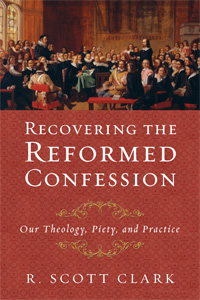The revival was marked by what were said to be great manifestations of the work of the Holy Spirit—speaking in tongues, ecstatic prophecies, miraculous healings and even the claim that somewhere around thirty people had been raised from the dead. Just . . . Continue reading →
QIRE
Neo-Baalism: Experience-Driven Worship
James Oord summarizes a provocative passage from Eugene Peterson about worship: Peterson points out that experience-driven worship was the hallmark of Baalism, the religion of the Canaanites in the Old Testament era. Their entire worship structure was focused on catering to emotions. . . . Continue reading →
Crying Up The Spirit And Crying Down The Ministry
Those who so cry up the Spirit as to cry down ordinances and the ministry do not have the Spirit of God. In the NT, when vision and inspiration were in use, the Spirit did not teach men immediately, but referred them . . . Continue reading →
“Did God Leave Me When I Went To Seminary?”
Ryan at Sola Gratia raises a question that many first-semester seminary students ask. In essence the question is this: Before I came to seminary I had an active devotional life and a vital, immediate, experience of God and now things have changed. . . . Continue reading →
The Disturbing Narrative Of Phebe Bartlet
She once of her own accord spake of her unsuccessfulness, in that she could not find God, or to that purpose. But on Thursday, the last day of July, about the middle of the day, the child being in the closet, where . . . Continue reading →
The Addiction to Religious Euphoria
Mark Galli (HT: Alex Webster) has an interesting story in CT Online about the power of religious euphoria. He likens the attraction to, indeed the addiction to euphoria to attraction and addiction to a drug. Galli writes: We disdain faith that is . . . Continue reading →
The Difference Between Reformed And Revived
So the “reformed” and the “revived” make two different kinds of determination when they look for Reformation and revival. Proponents of revival make claims that should be reserved for God, that is, whether a soul has truly come to new life in . . . Continue reading →
Good Old Fashioned Subjectivist Goo
In the 1920’s, J. Gresham Machen diagnosed not only the intellectual and theological drift of his day but of that which would continue to develop over the next 90 years. He wrote, The depreciation of the intellect, with the exaltation in the . . . Continue reading →
Is The Christian Life More Like Colorado Or Nebraska?
For most of my conscious life I have listened to other Americans complain about having to drive across Nebraska on I-80. As soon I tell non-Nebraskans that I am a Cornhusker they have two comments: 1. Your football team isn’t what it . . . Continue reading →
Sectarians: Socinians, Arminians, And Pietists
By the end of the seventeenth century, there was a sense that sectarian groups – a list that included Socinians and Arminians, as well as Pietists — were increasingly establishing themselves throughout Europe to the detriment of true Christianity. As Elisée Géraud . . . Continue reading →
Heidelberg 53: We Believe In The Holy Spirit (1)
53. What do you believe concerning the Holy Spirit ? First, that He is co-eternal God with the Father and the Son. Secondly, that He is also given to me, by true faith makes me a partaker of Christ and all His . . . Continue reading →
“Divine Winds” And Gay Elders: Where The QIRE Leads
The church has long been tempted to use a canon opener since the late 2nd century. As it became clear that the great acts of redemption were complete, that God’s special revelation had ended, the Montanist movement reacted by claiming to receive . . . Continue reading →
It Doesn’t Have To Be This Way
Why do evangelicals become Romanists, Eastern Orthodox, or Anglo-Catholics, i.e., Anglicans who identify more with Rome than with the historic Protestant Anglican confession (e.g., the Thirty-Nine Articles and the Anglican Catechism)? Al Mohler reflected recently on a Wall Street Journal story on . . . Continue reading →
Heidelberg 65: Faith, Union With Christ, And The Means Of Grace (2)
65. Since then we are made partakers of Christ and all His benefits by faith only, whence comes this faith? The Holy Spirit works faith in our hearts by the preaching of the Holy Gospel, and confirms it by the use of the . . . Continue reading →
I Have Not Seen Miracles Here: Between Pentecost And The Parousia
And suddenly there came from heaven a sound like a mighty rushing wind, and it filled the entire house where they were sitting. And divided tongues as of fire appeared to them and rested on each one of them. And they were . . . Continue reading →
Discussing QIRC And QIRE On Presbycast
Chortles Weakly, Wresbyterian (hence the image of “Baron von Raschke,” the “wrasslin” hero of my youth), and I spent an hour last night talking about the Quest for Illegitimate Religious Certainty (QIRC) and the Quest for Illegitimate Religious Experience (QIRE) and their . . . Continue reading →
Tillich: Pietism And The Enlightenment Both Fought Against Orthodoxy
It is entirely wrong to place the rationalism of the Enlightenment in contradiction to pietistic mysticism. It is popular nonsense that reason and mysticism are the two great opposites. Historically, Pietism and the Enlightenment both fought against Orthodoxy. The subjectivity of Pietism, . . . Continue reading →
The Evangelical Fall From The Means Of Grace
The prayers had been offered, the promises read, and the psalm sung. Two princes stepped forward to receive Communion, but the deacon refused to give them the cup. The superintendent of the city’s pastors ordered a second minister present to take the . . . Continue reading →













